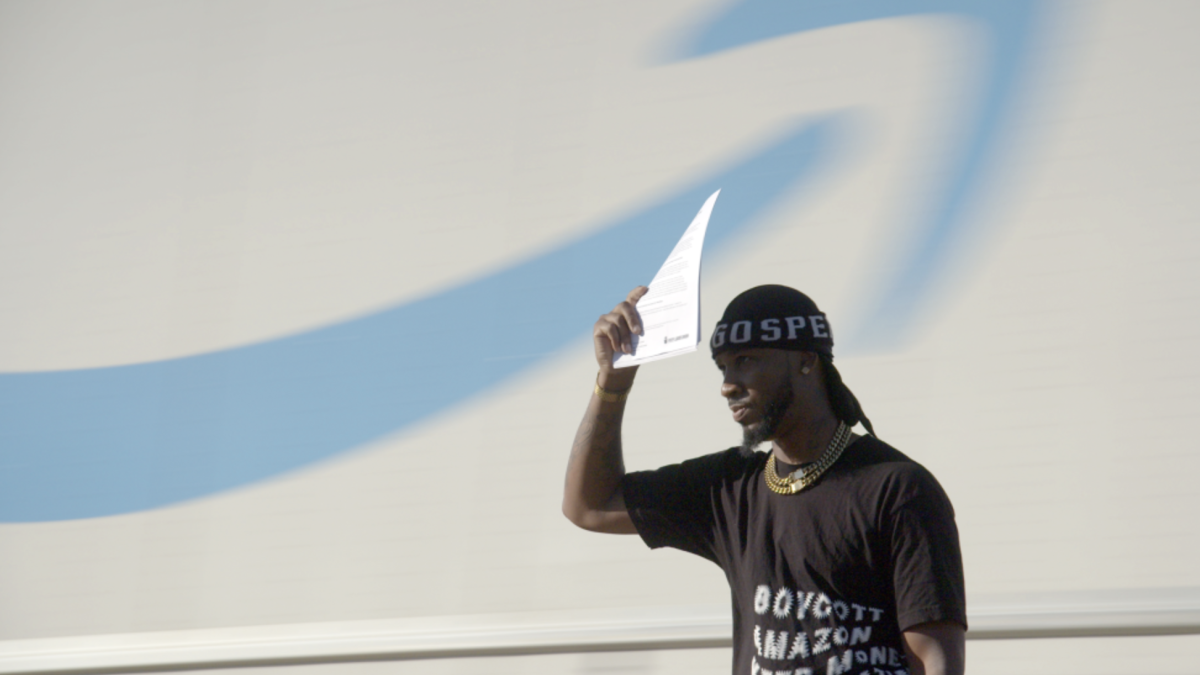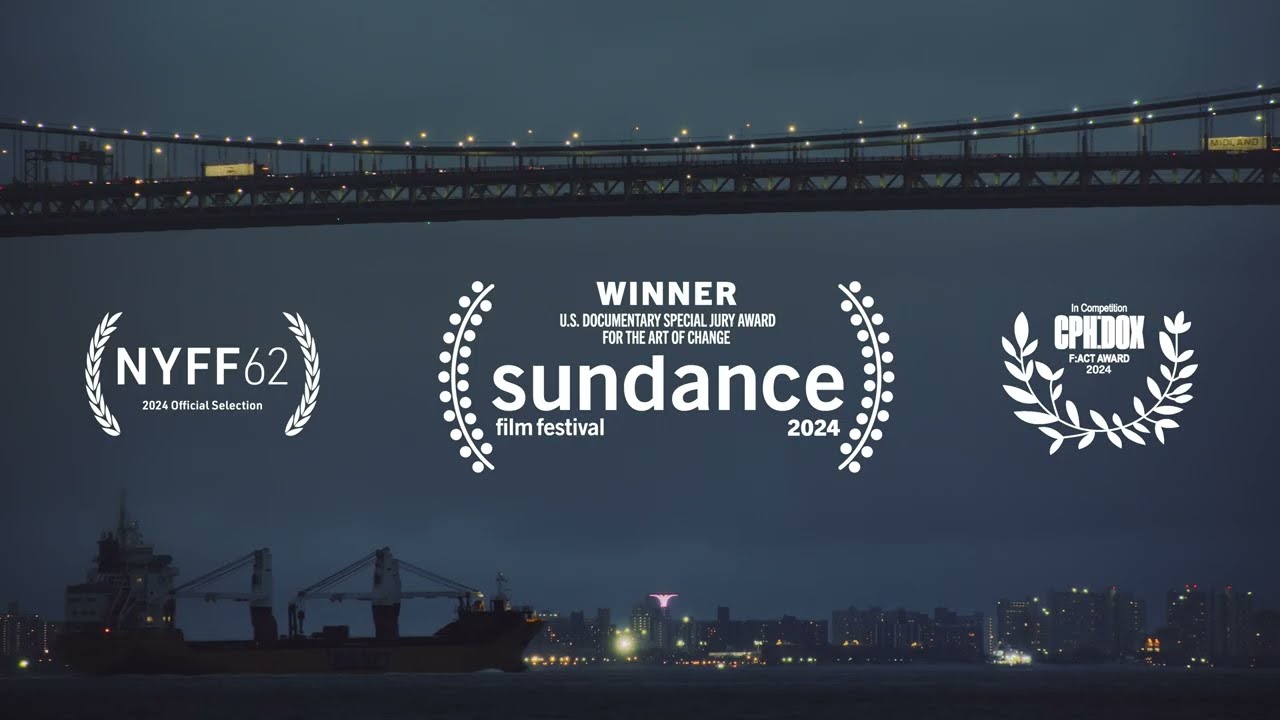"A vital and urgent portrait of labor organizing and its enduring possibility at a time when the fight for workers’ rights has never seemed more one-sided." - David Ehrlich, Indiewire
"A nuanced portrait of the challenges of leadership and a revealing celebration of the values of persistence, solidarity and free weed." - Daniel Fienberg, Hollywood Reporter
At the height of the pandemic, after protesting about the lack of personal protective equipment available to him as an employee, Chris Smalls was fired from his job at the Amazon warehouse on Staten Island. With no prior organizing experience, and on a shoestring budget, Smalls launched the Amazon Labor Union (ALU), and together with a group of current and former Amazon employees took on one of the world’s largest and most powerful companies in the fight to unionize. In their stirring, inspiring, and urgent portrait, Stephen Maing (CRIME + PUNISHMENT) and Brett Story (THE HOTTEST AUGUST) document the ALU’s collective, unflappable campaign to restore dignity and power to the working class, Amazon’s efforts to extinguish their spirit, and Smalls’ gutsy and historic grassroots campaign. Film Center exclusive.
Awards & Nominations
Winner - U.S. Documentary Special Jury Award, Art of Change, Sundance Film Festival
Nominee - F:ACT Award, CPH:DOX
5 QUESTIONS WITH BRETT STORY AND STEPHEN MAING
(Interview from September/October 2024 Gazette)
The Film Center welcomes a strong audience of students studying film. What is one piece of advice you’d give to an emerging filmmaker?
Brett: Find collaborators who you trust and who get you and what you’re doing. Know when to listen to feedback and have the humility to learn from others, but also the strength and perspective to reject feedback that misunderstands what you’re doing or that comes from a place of commercial interest or bad faith. Channel your inner punk. Try not to sell out.
What is a memorable moviegoing experience you’ve had?
Brett: I grew up in a small town with no local movie theater. The closest real movie theater (i.e. in a mall!) was a two-hour drive away. But when I was 13 years-old, there was a traveling cinema that would come to my town every Thursday night and set up in the cafeteria above our local ice rink. I remember very clearly getting through the scary parts of SINGLE WHITE FEMALE by sitting by the window and keeping one eye on the hockey practice happening below.
What film do you watch again and again?
Brett: Chris Marker’s SANS SOLEIL.
How did you connect with one another as collaborators, and with Chris Smalls to tell UNION’s story?
Stephen: During the pandemic we saw corporations like Amazon make profits in the billions. Workers on Staten Island were newly titled as “essential” but were deeply frustrated by the lack of basic health and safety protocols while they were packing and delivering products for the rest of the world. So when Chris and his co-workers organized a walk-out, a seed of this new movement was planted. Our producers Sam and Mars reached out to Chris about possibly filming—and a year later, when the ALU decided to take a shot at unionizing, our team—which had been assembling over the months–was in position to start filming from day one of that effort.
We’re presenting UNION alongside a series of labor films (THE DEVIL AND MISS JONES, ROGER & ME, THE KILLING FLOOR, HARLAN COUNTY U.S.A.). How did that canon influence your work on UNION, and/or how did you endeavor to add new voices to the genre with your film?
Stephen: I think those films offer a powerful breadth of labor depiction and how complicated the struggle has been over the past hundred years. There’s no overstating the importance of nonfiction works like Barbara Kopple’s HARLAN COUNTY U.S.A. and Michael Moore’s ROGER & ME—films that first demonstrated for so many filmmakers the artistic and political power of observational and investigative non-fiction cinema. In making UNION, these films helped us carefully consider what could and also needed to be said about this new era of labor organizing.
Workers of the World, Unite! (October 25–31) offers films that portray American organizers, unionizers, and labor rebels who speak up, speak out, and fight back against unfair working conditions and nefarious bosses in order to be treated (to quote Lily Tomlin’s character in 9 TO 5) “equally, with a little dignity, and a little respect.” Read more
The Film Center is ADA accessible. This presentation will be projected without open captions. The theater is hearing-loop equipped. For accessibility requests, please email filmcenter@saic.edu



